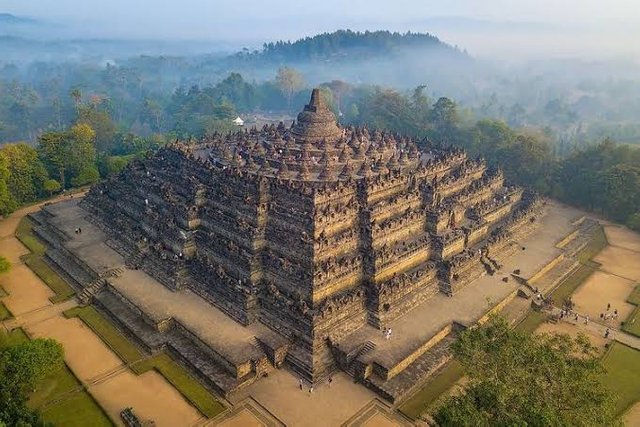
First rediscovered in the early 19th century by Sir Thomas Stamford Raffles, Borobudur Temple has undergone a long and careful restoration process to maintain its beauty. The structure of this temple is impressive with intricate carvings and reliefs that tell stories from Buddha's teachings, as well as depicting the daily life of people at that time.
Apart from being a place of pilgrimage for Buddhists, Borobudur Temple also attracts the interest of archaeologists, historians and tourists from all over the world. The unique architecture of the temple, with its multi-tiered structure and terrace-shaped stupa, reflects the concept of cosmology in Buddhist teachings. Every part of this temple has a deep symbolic meaning, from the reliefs depicting the spiritual journey to enlightenment to the stupas symbolizing the journey to Nirvana.
However, the magic of Borobudur Temple lies not only in its visual beauty, but also in its role as an important spiritual and cultural center for Indonesian society. Every year, thousands of people come to this temple to celebrate Vesak, which is a holy day in Buddhism that commemorates the birth, enlightenment and death of the Buddha. This celebration shows how important Borobudur Temple is in maintaining the cultural and spiritual heritage of the Indonesian people.
With its stunning beauty and deep spiritual meaning, Borobudur Temple remains an unforgettable destination for anyone who visits it. As a UNESCO world heritage site, its existence provides inspiration and admiration for current and future generations, as well as being a symbol of diversity and tolerance in diverse Indonesia..